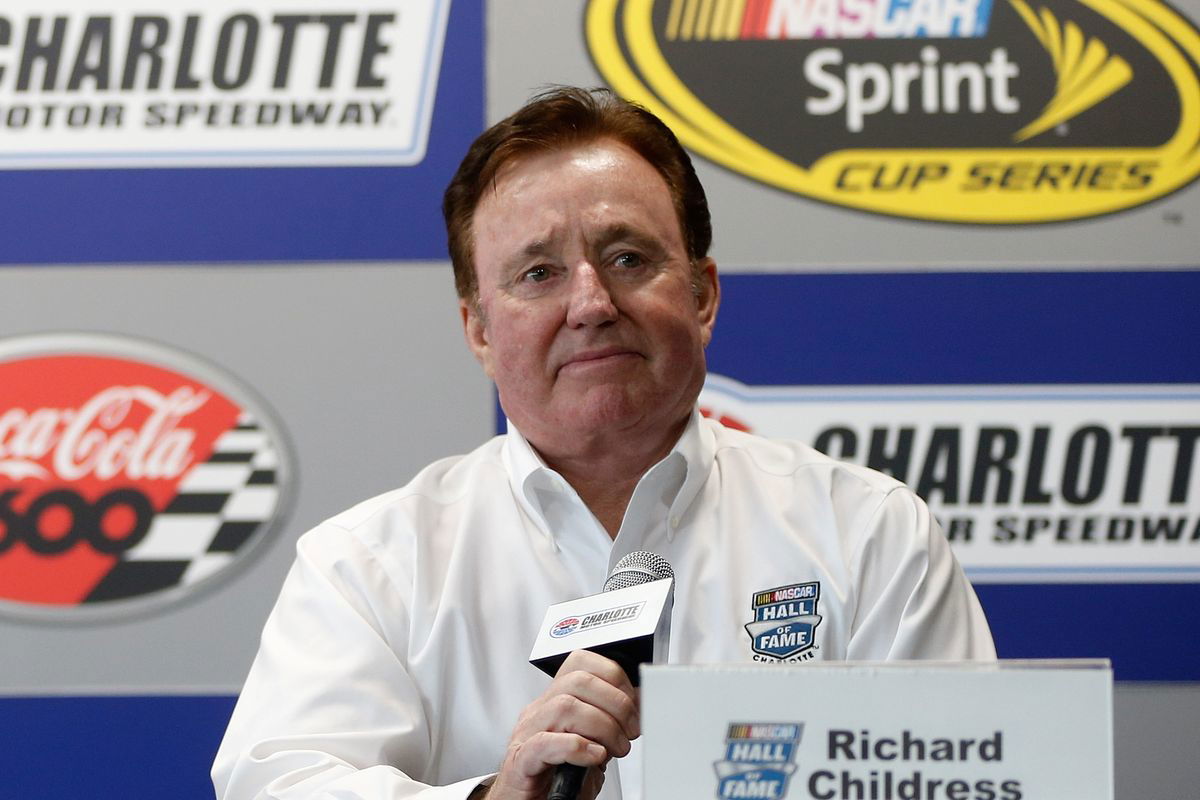Nov 7, 2024 | 9:31 PM EST




When 23XI Racing realized their playoff hopes were slipping, the team took drastic measures. With the Final Four in sight, tension soared, and strategies veered into the gray. As Ryan Blaney closed in on the third championship slot, it was a points battle between him and William Byron that held the key to the final berth. Their teams deployed stealthy moves to boost chances, triggering NASCAR’s penalties. Meanwhile, Richard Childress and other team owners could do little but watch as NASCAR cracked down on these high-stakes tactics.
Watch What’s Trending Now!
All three drivers were slapped with a total of $600,000 fine along with a deep points redux and suspensions of crew chiefs, spotters, and team executives for Phoenix. Their teams were outraged at this severe punishment at first,cing was the first to know it was useless, and now their fellow perpetrators are in a similar soup. but then that opposition fizzled out. 23XI Racing was the first to know it was useless, and now their fellow perpetrators are in a similar soup.
Richard Childress got a slap in the face
Well, the acts looked pretty egregious to begin with. Although William Byron exchanged the lead of the Xfinity 500 race several times, the No. 24’s car lost its pace by lap 471, falling to 6th place. Brad Keselowski was in the mode to overtake him, but the No. 1 and the No. 3 crew chiefs colluded for a Chevy ‘deal’. Soon, Austin Dillon and Ross Chastain formed a ‘rolling roadblock’ behind him, preventing other cars from overtaking Byron. Similarly, Bubba Wallace intentionally slowed down to let Christopher Bell take a wall ride to the front.
And Wallace’s team was the first to realize the gravity of the act. Shortly after declaring their intent to appeal on Tuesday, 23XI Racing withdrew it. The National Motorsports Appeals Panel (NMAP) heard and considered the appeal by Trackhouse Racing on Thursday. Eventually, the three-person panel of Kelly Housby, Lyn St. James, and Steve York determined Ross Chastain’s actions to be violating the NASCAR rulebook. Soon after this decision rolled out, Richard Childress accepted defeat. They had a hearing set for 5:30 p.m. ET but withdrew its appeal.
Richard Childress Racing withdrew its appeal
— Kelly Crandall (@KellyCrandall) November 7, 2024
Richard Childress clearly felt it was impossible to pull his grandson out of this mess. Holding sufficient precedents—like Clint Bowyer’s ‘Spingate’ fiasco in 2013 or Cole Custer intentionally slowing to let Chase Briscoe win in 2022—the Martinsville dilemma was a clear-cut case.
The panel explained its decision about Trackhouse, announcing, “We feel in the best interest of racing, and to protect the integrity of the sport, it was appropriate to uphold and affirm NASCAR’s decision with regard to the NASCAR rule 4.4, attempting to manipulate the outcome of the race.” The suspension of spotter Brandon McReynolds will also affect Parker Kligerman and Big Machine Racing for the upcoming Phoenix activities.
However, will this teach the perpetrators a lesson? History counters this possibility.
Inadequate penalties?
Dale Earnhardt Jr. vehemently opined that this is hardly enough to contain the lawlessness running wild in NASCAR. “To really get someone’s attention, I think parking them a race – it will be enough of a deterrent for someone to not do it again,” Dale Jr. said. On top of that, Richard Childress’ grandson has a checkered history of illicit moves this season.
During the August Richmond race, Austin Dillon wrecked out both Joey Logano and Denny Hamlin to seize the win. Then Bubba Wallace also holds this history—he ‘door-slammed’ Alex Bowman during the cool-down lap after the latter won the Chicago Street Race. Last year, another infraction of rules was committed, and the perpetrators clearly did not learn their lesson.
In March 2023, NASCAR issued L3 penalties to all four Hendrick Motorsports cars and one Kaulig Racing car. The issue was “Unapproved modification of a single source vendor supplied part (hood louvers).” Each race team lost 100 driver points, 100 owner points, and 10 playoff points. Also, the crew chiefs had to pay $100,000 fines each.
The appeals only reduced their points penalties, but the monetary fines were in place. Despite this hefty punishment, only a month later the No. 24 and the No. 48 HMS cars breached the rules yet again. This time, they made illegal modifications to the greenhouses of both cars. Penalties came yet again: 60 driver and owner points, 5 playoff points, fines of $75,000, and two-race suspensions for the crew chiefs.
Evidently, the penalty may not be enough to avoid a repetition of the Martinsville fiasco. For now, Richard Childress and Co. have realized their futile appeals and can focus on nursing their penalized teams back into form again.



